- Home
- Jim Eldridge
Murder at the Natural History Museum Page 2
Murder at the Natural History Museum Read online
Page 2
‘Not the most prestigious of locations,’ grunted Daniel.
A glass-panelled door had the words ‘Petter and Wardle’ painted on it in gold lettering. Daniel knocked on the glass, then turned the handle, and he and Abigail walked in. It was a small, cramped room, shelves overflowing with bundles of papers tied with ribbons, and four wooden filing cabinets. The desk that took up most of the room was also laden with papers. The dominant smell in the room was a stink of body sweat, combined with decaying paper and cheap gin. The man sitting behind the desk, a red-faced man with a large ginger moustache looked up at them, warily.
‘Yes?’ he asked.
‘Mr Daniel Wilson and Miss Abigail Fenton,’ said Daniel. ‘We have been engaged by the Natural History Museum to investigate damage done to a dinosaur skeleton, discovered early this morning. It had been smashed.’
‘What’s that to do with me?’ demanded the man.
‘Which are you: Mr Petter or Mr Wardle?’ asked Daniel.
‘I am Mr Erskine Petter,’ said the man haughtily. ‘Senior partner. And I ask again, what has this smashed dinosaur skeleton to do with me?’
He made no attempt to get up, nor to offer them a seat, although there were two vacant chairs by the window. But the sight of the dust and dirt on the chairs had already made both Abigail and Daniel decide to reject the offer of a seat if it was made.
‘We’ve been shown a letter you sent to the museum as representatives of the Bone Company of America, in which you stated that unless the museum only purchased dinosaur skeletons from your client there would be retribution,’ said Abigail. ‘You will agree that “retribution” has an ominous, not to mention threatening, tone to it.’
‘It was used purely in the context of financial recompense and a loss of reputation of our client. My client has been cheated.’
‘By Miss Evelyn Scott?’ asked Abigail. ‘Who you addressed as “Dear Sir”?’
Petter sniffed. ‘I do not know the lady. Our transactions were conducted with her predecessor, Mr Danvers Hardwicke.’
‘Yet there seems to be no correspondence in the museum’s files from you prior to this recent letter threatening retribution.’
‘That is because all previous correspondence was between the Bone Company and Mr Hardwicke directly.’
‘But no letters to or from the Bone Company of America have been found in the museum’s files,’ said Daniel.
‘Are you calling me a liar?’ demanded Petter angrily.
‘No,’ said Daniel. ‘We’re just saying that the museum has no trace of any letters or any sort of correspondence from the Bone Company of America.’
‘They must have been deliberately destroyed,’ said Petter, flatly.
‘Have you any evidence these letters existed?’ asked Abigail.
‘I have a letter from the Bone Company advising me that the letters of agreement were sent and signed by Mr Hardwicke.’
‘Have you seen these letters?’ asked Abigail. ‘Do you have copies you could show us?’
‘Are you questioning my veracity?’ demanded Petter, indignantly.
‘Not at all,’ said Abigail. ‘I’m just asking if we might look at them. Then we can advise Miss Scott that we have seen them and suggest she comply with your requests.’
Petter hesitated before saying awkwardly: ‘No, I haven’t actually seen them. But I have no reason to doubt my client when they say such letters exist.’
‘If that’s the case and they were in direct correspondence with the museum previously, why did they engage you to take up the issue on their behalf?’
‘Because it takes time for letters to cross the Atlantic,’ replied Petter. ‘That presented no problem while arrangements were being made for the museum to purchase the skeletons because the exhibition was some months away at that time. But now there is an urgency about the situation and the Bone Company felt it was vital that they had a representative here in London who is authorised to act on their behalf to expedite matters.’
Abigail nodded. ‘Yes, that makes sense. Could you furnish us with the address and the names of the owners of the Bone Company?’
‘Again, you doubt me?’ demanded Petter, stiffly.
‘Not at all,’ repeated Abigail. ‘But if we are to persuade our client, the museum, you have a valid case, the more practical information we can provide the better.’
‘All correspondence between us and our client is confidential,’ said Petter.
‘Even just the name of the owner and the address of the company?’
‘Especially that information.’
‘Perhaps we should arrange a further meeting between ourselves and you, next time with your partner, Mr Wardle,’ said Daniel.
‘There would be no point.’ said Petter.
‘At least Mr Wardle should be advised that legal action may result because of this incident.’
‘He will be so advised,’ said Petter. ‘At the moment he is out of the country, but I will inform him by letter. Now, I believe our business is done and I will ask you to leave.’
Daniel looked to Abigail, who nodded, and they left the office, heading back down the grimy stairs and out into the street.
‘What a dreadful place,’ said Abigail. ‘Even this sooty air outside seems fresh after that room. What did you make of it?’
‘I’m wondering if there is actually a Mr Wardle.’
‘Why? What are you thinking?’
‘There’s no evidence of any earlier correspondence from them or this alleged Bone Company. The offices are in a shabby back street in Paddington. It suggests to me something dubious.’
‘Extortion?’ asked Abigail.
‘It’s been done before. Some disreputable character sees the chance of making money from the Natural History Museum about this exhibition. They lodge a spurious but legal-sounding claim in the hope of being paid off. When that fails, they up the pressure by sending in a thug with a hammer.’
‘But why do you doubt the existence of a Mr Wardle?’
‘Having two names on the letterhead gives the company greater authenticity, even if one of them is fictitious.’
‘You think Mr Petter carried out the attack on the dinosaur fossil?’
Daniel shook his head.
‘I can’t see him doing the dirty work. It’s more likely that he hired some thugs to do the actual damage. Proving it, however, is another matter.’
‘Then we look into Mr Petter and his associates,’ said Abigail. ‘However, first we need to tell Miss Scott about our meeting with Petter and see how far she wants us to go with our investigation, because it could prove expensive. There’s a good chance that our turning up at Petter’s office may put him off from committing any further damage. Especially if Miss Scott decides to hire a couple of nightwatchmen, which would be the cheaper option.’
CHAPTER THREE
They returned to the museum where they reported on their meeting with Petter to Miss Scott.
‘And you think this Mr Petter was behind the attack on the iguanodon?’ asked Scott.
‘It’s possible,’ replied Daniel. ‘In fact, my policeman’s nose tells me there’s definitely something suspect about Mr Petter and his whole set-up.’
‘Your policeman’s nose?’ queried Scott.
Daniel grinned and tapped the side of his nose. ‘Many years in the Metropolitan Police Detective Division gives you a second sense about these things. However, proving that he was behind it is another matter.’
‘I’d like you to try,’ said Scott. ‘If he did it, but now decides to back off, then someone else might make an attempt. I want to stamp out that prospect.’
‘Then we will, but we would also recommend hiring a nightwatchman or two, even just for the duration of the exhibition,’ said Daniel. ‘We shall come in early tomorrow morning and talk to the cleaners who found the damage.’
‘In that case I shall also come in early so that we can have a proper discussion before the museum opens,’ said Scott. ‘I’ll ask
Mrs Smith to get out any notes relating to the exhibition so you can examine them, in case there’s anything there that may give you evidence backing up your suspicions about these Petter and Wardle people.’
‘If we’re going to investigate them and the threat contained in their letter, it would help us if you could tell us something about their alleged client, the Bone Company of America,’ said Daniel. ‘And about any other such companies. From the tone of Petter and Wardle’s letter, it suggests that there are a few companies vying for business over dinosaur skeletons.’
‘Oh yes. To such an extent that it resulted in what became known as the Bone Wars—’
‘One moment,’ interrupted Daniel. ‘My apologies, but I’m starting from a position of ignorance. Am I right in assuming these Bone Wars took place in America?’
‘Yes,’ said Scott. ‘Between 1877 and 1892. They were called the Bone Wars because that’s what they developed into. Men from two rival factions attacking the other side and destroying the fossils they’d found. There were stories that some men were actually killed, but I’m not sure if that’s true.’
‘How did it reach such a pass?’ asked Daniel.
‘It was as a result of the expansion of the railroad into the Western states, particularly Colorado, Wyoming and Nebraska. As the ground was dug up and levelled for the railway tracks, so a variety of fossils were uncovered. Some of them very large indeed. News of these finds brought palaeontologists to what became known as the bone beds.’
‘Palaeontologists?’ queried Daniel at this unfamiliar word.
‘Fossil hunters,’ translated Abigail.
‘Exactly,’ said Scott. ‘The main protagonists were Othniel Charles Marsh and Edward Drinker Cope. Marsh and Cope were both wealthy men, fanatical fossil hunters and deadly rivals. Each was determined to become more famous than the other in the field, which meant discovering more species than his rival. There is no doubt that they uncovered an astonishing amount of dinosaur skeletons: triceratops, allosaurs, stegosaurus, diplodocus. Skeletons that had never been discovered before, certainly not in Britain.
‘As word of their finds and their fame spread, others joined in, and soon the whole of the West was filled with dinosaur hunters battling one another. Marsh and Cope may have been driven by scientific discovery, but these latecomers were there for profit.’
‘As a result, I assume the Bone Wars became even more vicious.’
‘I’m afraid so. The opportunity for sudden wealth attracts all sorts. To be honest, it became impossible to know who was who: who had a rightful claim to a particular skeleton and who hadn’t. We employed an agent in America who arranged the purchase of the skeletons on our behalf, with an assurance that they would guarantee such sales were bona fide.’
‘Have you been in contact with your agents in America to ask them about this Bone Company?’ asked Daniel.
‘I wrote to them as soon as we received the letter from Petter and Wardle, but that was almost a week ago, and correspondence between Britain and America takes some time.
‘I must also let you know that I’ve written to all the trustees of the museum to inform them of the unfortunate incident over the iguanodon. I decided it was preferential that they hear about it from me rather than read about it first in the newspapers. I’m just telling you in case any of them decide to visit tomorrow while you’re here.’
That evening at their home in the small terraced house in Camden Town, Daniel tucked enthusiastically into the meal that Abigail laid before him. Usually, Daniel liked to provide the evening meal, but today Abigail had pressured him into letting her take over his much-loved kitchen range. ‘I have a special surprise in mind,’ she’d told him that morning. She’d barely finished her preparations when the message had arrived from Miss Scott requesting their assistance, just giving her time to pop her surprise dish into the slow cooker before they left for the museum. Now, Daniel was relishing the plate of food before him.
‘This stew is delicious,’ said Daniel. ‘You’ve excelled yourself.’
‘It’s not just a stew, it’s boeuf bourguignon,’ Abigail corrected him.
‘French?’ queried Daniel.
‘Oui, monsieur,’ said Abigail. ‘I found the recipe in a magazine, and I’ve been looking forward to trying it out. It seemed the ideal dish to cook.’
‘It’s certainly ideal,’ said Daniel. ‘When we move, we’ll have to make sure our new house has a range in the kitchen if we can produce meals like this.’
Abigail smiled. ‘We? I agree you produce lovely food on it, but you’ve had years of experience using it and you tend to either roast or boil.’
‘Techniques that have served me well,’ said Daniel. ‘But I’m happy to learn new cooking under your tutelage.’
‘Excellent,’ said Abigail. ‘I have recipes I discovered in Greece and Arab countries, interesting ways of cooking goat.’
‘Goat?’ said Daniel doubtfully.
‘Don’t dismiss things until you’ve tried them.’
‘If it’s as good as this, I look forward to it,’ said Daniel, and speared another forkful into his mouth. As he ate, he said: ‘I was thinking about what Miss Scott told us about the Bone Wars in America and reflecting how different it is here.’
‘Is it?’ asked Abigail.
‘Well, I’ve never heard you talk about being attacked by rival archaeologists.’
‘No, it happens in a more subtle way here,’ said Abigail. ‘Reputations are attacked, aspersions cast on another’s good name and scientific credentials. It happens in all areas of research. Botany is a hotbed of it. I’ve often thought it’s about trying to achieve immortality by getting your name attached to a new species, whether it’s a flower, an insect, a fish or a dinosaur. For example, at the exhibition there’s the skeleton on display of an iguanodon that was discovered at Maidstone in Kent. You’ll see that it’s listed as Iguanodon Mantelli, after Gideon Mantell, who was one of the first people in Britain to discover this creature. But there’s some dispute about who really found this particular dinosaur. There were reports that the actual discoverer was Gideon Mantell’s wife, Mary Ann.’
‘Which would still make it qualify as Iguanodon Mantelli,’ said Daniel.
‘But there’s also a claim that a similar fossil was discovered by a man called William Harding Bensted.’
‘Perhaps the best way to get to the truth would be to ask Gideon Mantell.’
‘As he died a few decades ago that would be difficult,’ said Abigail. ‘Also, some people can be quite spurious with the truth. And that includes the man who created the Natural History Museum, Sir Richard Owen. He was awarded the Royal Medal for a paper he’d written on the belemnites, a marine fossil. But he neglected to say that the belemnites had been discovered four years previously by an amateur biologist called Chaning Pearce.’
‘So he was a cheat,’ said Daniel.
‘As a result Owen was voted off the councils of the Royal Society and the Zoological Society. However, he was still knighted some years later.’
‘But he was still a cheat.’
‘Not completely. Much of the work he published was from his own research. And he was the first person who coined the phrase “dinosaur” to define these creatures. The problem is he was also an opportunist and sometimes took shortcuts.’
‘By stealing other people’s work?’
‘It happens in all areas. Did Shakespeare really write all those plays, or did he borrow some parts from Bacon or Marlowe? It’s known he took most of his history plots from Holinshed.’
‘Theft is still theft, and that includes plagiarism,’ said Daniel.
‘It can be a grey area when it involves academic research. Frankly, it’s about who gets the credit.’
Daniel laid aside his knife and fork with a smile of pleasure.
‘Superb,’ he said. ‘Which brings me back to where I began, the question of us moving house and making sure it has a range in it. You do still want us to marry, I hope?’
>
‘I do,’ said Abigail. ‘In fact, it’s something I’ve been weighing up quite seriously recently.’
‘Really?’ said Daniel warily. ‘Why “seriously”?’
‘Because if we are going to be married, I’d like to find out more about your family, before I meet them at the wedding.’
‘I don’t have any family,’ said Daniel
‘You must have,’ said Abigail. ‘A cousin many times removed. A distant aunt or uncle.’
‘No,’ said Daniel. ‘None. There’s just me.’
‘Your parents?’ asked Abigail. She hesitated before adding, ‘I’ve often wanted to ask you about them before, but I suppose I was waiting for you to tell me about them yourself.’
‘There’s not a lot to tell,’ said Daniel.
‘There is,’ insisted Abigail. ‘You know about me. You’ve met my sister, Bella. You know we grew up in a reasonably nice area of Cambridge. When our parents died we were left with some money from my father which enabled me to go to university to study, and for Bella to be able to choose an occupation which suited her. You’ve met Bella’s husband. We have an aunt on our mother’s side who lives in Lincolnshire, Aunt Matilda. She’s very elderly and I haven’t seen her in a long time, but I understand Bella has visited her. Bella is much more aware of family duties than I. Once you know that, you know all there is to know about my family. But about yours, I know nothing. How did you come to be in Camden Town? You said you grew up here. Did your parents live here?’
‘I believe they did, at first,’ said Daniel. ‘My father was an ostler, looking after horses left outside inns. I believe his name was Horace.’
‘You believe?’
‘I only ever heard people refer to him as Wilson or as Aitch. He died when I was seven.’
‘Oh, I’m so sorry,’ said Abigail.
Daniel shrugged. ‘It happened. I didn’t really know him. As an ostler, he spent most of his time outside of inns and much of it inside them. He drank a great deal. That may be one of the reasons he died.’

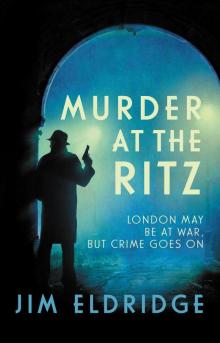 Murder at the Ritz
Murder at the Ritz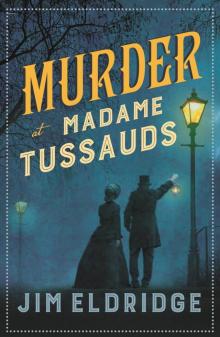 Murder at Madame Tussauds
Murder at Madame Tussauds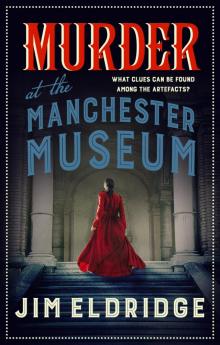 Murder at the Manchester Museum
Murder at the Manchester Museum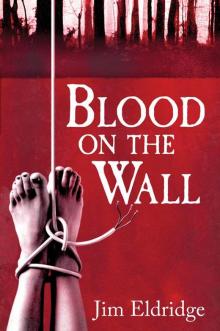 Blood On the Wall
Blood On the Wall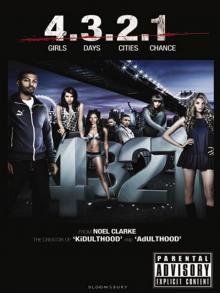 4.3.2.1
4.3.2.1 Jungle Kill (Black Ops)
Jungle Kill (Black Ops)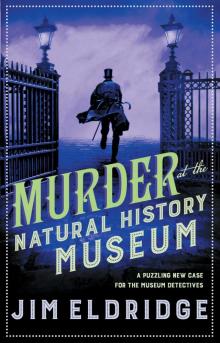 Murder at the Natural History Museum
Murder at the Natural History Museum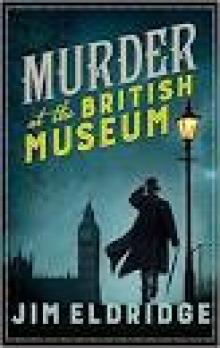 Murder at the British Museum
Murder at the British Museum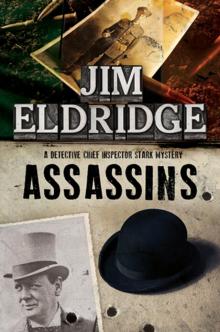 Assassins
Assassins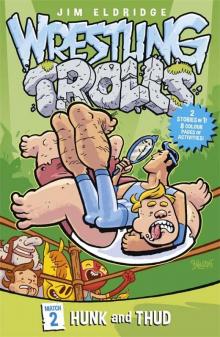 Hunk and Thud
Hunk and Thud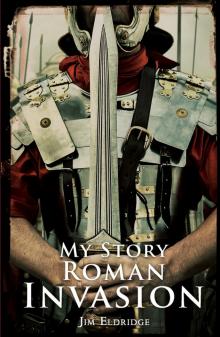 Roman Invasion
Roman Invasion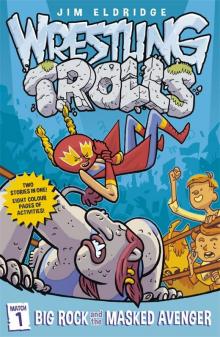 Big Rock and the Masked Avenger
Big Rock and the Masked Avenger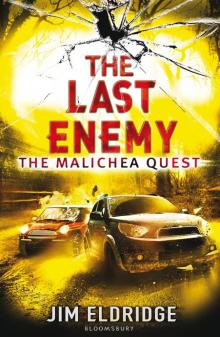 The Last Enemy
The Last Enemy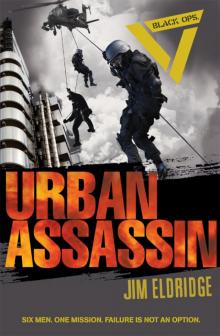 Urban Assassin
Urban Assassin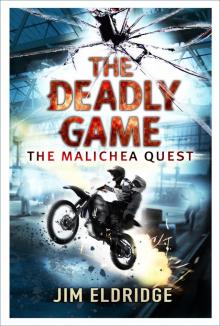 The Deadly Game
The Deadly Game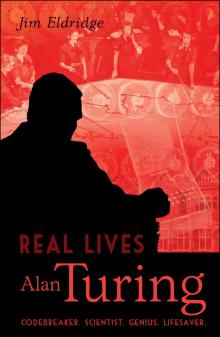 Alan Turing
Alan Turing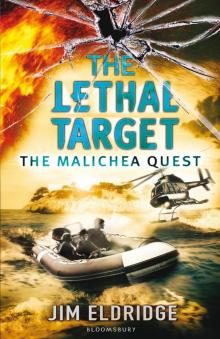 The Lethal Target
The Lethal Target The Giant Rumble
The Giant Rumble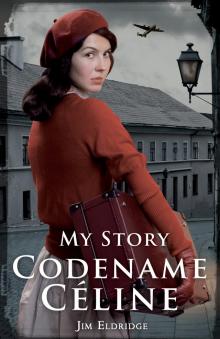 Codename Céline
Codename Céline Death in the Desert
Death in the Desert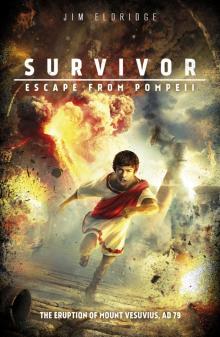 Escape from Pompeii
Escape from Pompeii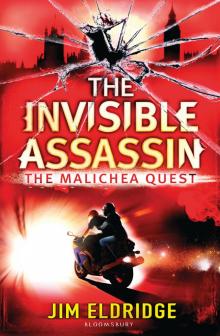 The Invisible Assassin
The Invisible Assassin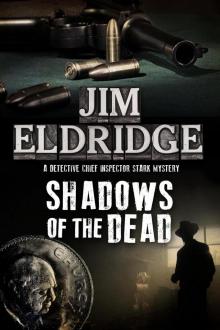 Shadows of the Dead
Shadows of the Dead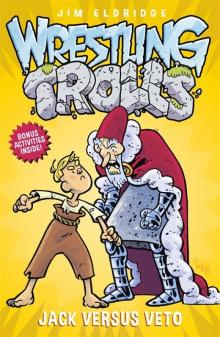 Jack Versus Veto
Jack Versus Veto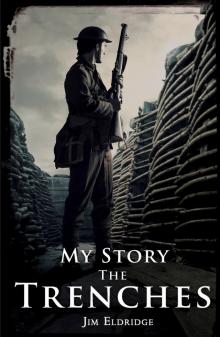 The Trenches
The Trenches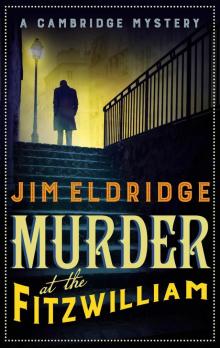 Murder at the Fitzwilliam
Murder at the Fitzwilliam Coming Home
Coming Home